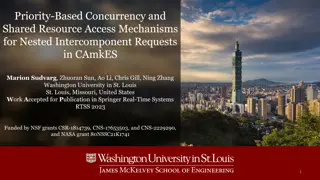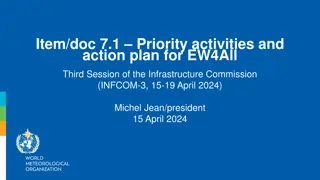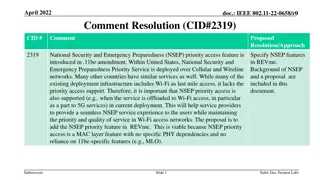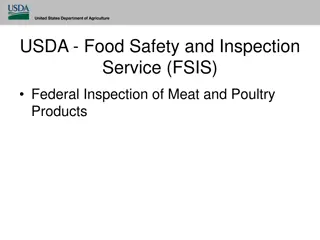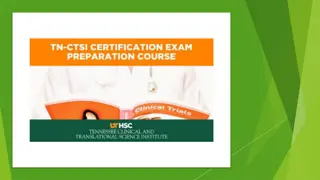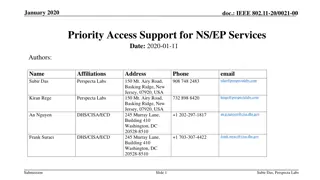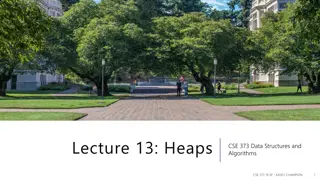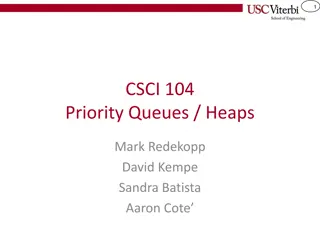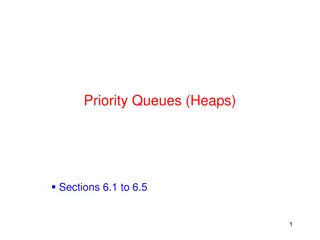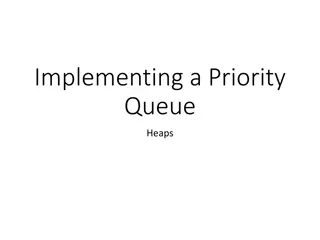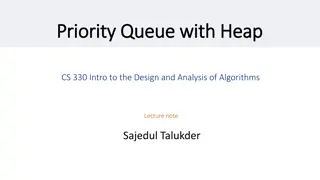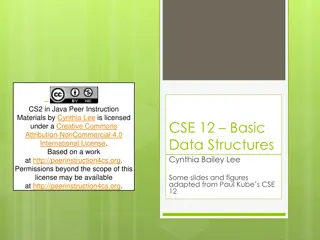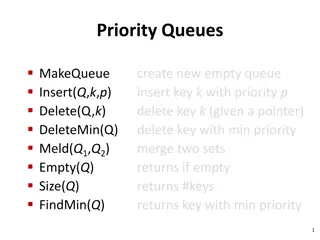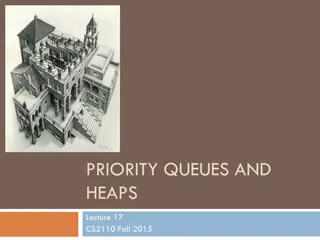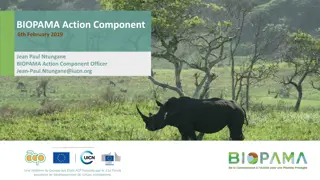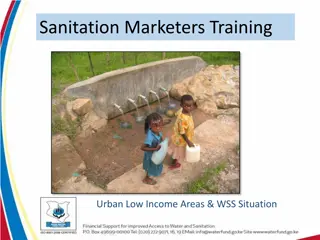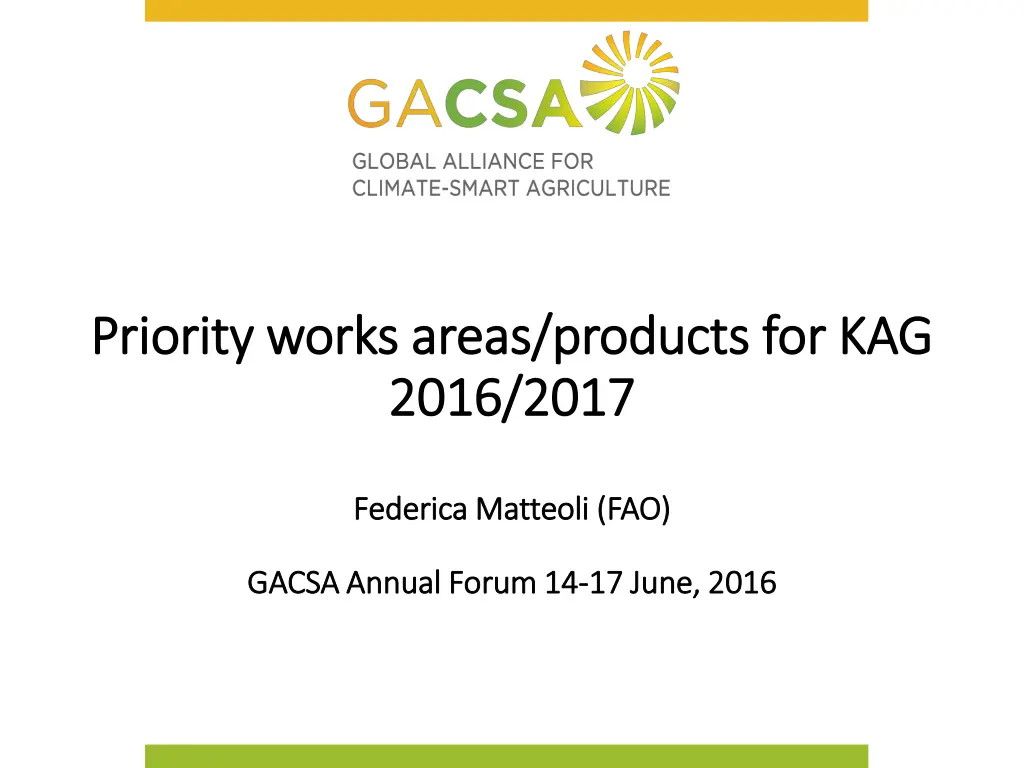
Technical Interventions and Practices in Climate-Smart Agriculture (CSA) for Sustainable Farming
Explore technical interventions and practices in Climate-Smart Agriculture (CSA) focusing on livestock management, agro-forestry, water harvesting, and forest management. Learn about strategies to enhance animal productivity, reduce greenhouse gas emissions, improve water management, and promote sustainable agroforestry systems. Discover how these initiatives contribute to achieving CSA outcomes for resilient and sustainable farming practices.
Download Presentation

Please find below an Image/Link to download the presentation.
The content on the website is provided AS IS for your information and personal use only. It may not be sold, licensed, or shared on other websites without obtaining consent from the author. If you encounter any issues during the download, it is possible that the publisher has removed the file from their server.
You are allowed to download the files provided on this website for personal or commercial use, subject to the condition that they are used lawfully. All files are the property of their respective owners.
The content on the website is provided AS IS for your information and personal use only. It may not be sold, licensed, or shared on other websites without obtaining consent from the author.
E N D
Presentation Transcript
Priority works areas/products for KAG Priority works areas/products for KAG 2016/2017 2016/2017 Federica Federica Matteoli (FAO Matteoli (FAO) ) GACSA Annual Forum 14 GACSA Annual Forum 14- -17 June, 2016 17 June, 2016
Technical interventions and practices in Technical interventions and practices in CSA (e.g. practice briefs CSA (e.g. practice briefs). SG 1 Livestock (e.g. manure management): Feed quality and digestibility are major determinants of animal and herd productivity and also affect greenhouse gas emissions from livestock. Improved livestock feeding practices involve improving the quality of forages for ruminants through sourcing or processing, balancing feed component within rations and supplementing the feed provided to animals. CCAFS/FAO Animal breeding: Selecting preferred animals can yield permanent and cumulative improvements in the population. More efficient animals can greatly reduce greenhouse gas emissions and feed costs. Breeding, including cross-breeding between indigenous and imported species, can also improve resilience to diseases and heat stress and increase reproductive performance. GRA Report on approach to results-based management of CSA: Documentation of an approach to results-based management of CSA (being piloted by CCAFS). ). SG 1
Technical interventions and practices in Technical interventions and practices in CSA (e.g. practice briefs CSA (e.g. practice briefs). SG1 Agro-forestry: Practice brief focused on the application of agro-forestry to achieve CSA outcomes. CCAFS/FAO Field-scale water harvesting: provide an overview of field-scale water harvesting practices that are available to improve water management under CSA. FAO Quesungual and Kuxur Rum climate-smart agroforestry systems for semi-arid areas: present two similar agro-forestry systems which were developed in Guatemala and Honduras and are currently promoted as CSA practices by an FAO project. The practice brief should look at their contribution to CSA and their potential for transfer to other geographic regions. FAO ). SG1
Technical interventions and practices in Technical interventions and practices in CSA (e.g. practice briefs). SG1 CSA (e.g. practice briefs). SG1 Climate Smart Forest Management: TENTATIVE - overview of practices and strategies available to support CSA. FAO Forest Landscape Restoration: TENTATIVE - overview of Forest Landscape Restoration and how it can best contribute to the achievement of CSA outcomes. FAO Compendium on CSA Irrigation: discuss the issue of irrigation in the context of climate change in general, provide a perspective on the implications for the landscape/river basin level, and analyse a number of specific irrigation practices for their potential contributions to climate-smart production systems. Contributions of analyses of specific irrigation practices by interested partners are welcome. FAO
Technical interventions and practices in Technical interventions and practices in CSA (e.g. practice briefs). SG1 CSA (e.g. practice briefs). SG1 Diversified maize system in Southern Africa: focused on the diversification of maize-based food systems in Southern Africa. IITA Intensification for conservation in DRC: Within the Congo Basin, pressure on forests has resulted in deforestation or forest degradation. Intensification of agriculture in the forest margins associated with appropriate policy and regulatory frameworks can reduce such pressures. IITA
Technical interventions and practices in Technical interventions and practices in CSA (e.g. practice briefs). SG1 CSA (e.g. practice briefs). SG1 Index-based insurance: Traditional crop insurance gives payouts that are explicitly determined on measured loss for a specific client. Index insurance allows farmers to purchase coverage based on an index that is correlated with those losses, such as average yield losses over a larger area or a well-defined climate risk, e.g. erratic rainfall, that significantly influences crop yields. CYMMIT Climate resilience maize germplasm: targets, approaches and scaling up: Use of improved germplasm tolerant to drought and heat stress to achieve CSA outcomes. CYMMIT
Technical interventions and practices in Technical interventions and practices in CSA (e.g. practice briefs). SG1 CSA (e.g. practice briefs). SG1 Water Smart Agriculture: UC Davis System of Rice Intensification (SRI). The System of Rice Intensification (SRI) is a knowledge-based, climate-smart methodology for increasing the productivity and resilience of rice. Cornell University Nutrient Management booklet. WFO/IFA
Support Support, services and extension for , services and extension for CSA (e.g. extension products). CSA (e.g. extension products). SG2 SG2 Providing climate services in agriculture to farmers in Science Field Shops where farmers learn agrometeorology to enable them to respond better to climate change needs well- educated extension intermediaries (extension staff and farmer- facilitators). FAO/Uni. Ind. Training of extension trainers had to be urgently worked on to enable them guiding Science Field Shops by making them climate literate and improving their capability to provide climate services to farmers in a dialogic knowledge exchange . FAO/Uni. Ind. Review of existing examples of successful index-based insurance for scaling up- Ethiopia, India, Malawi, Senegal, USA, West Africa. FAO/ CYMMIT (?)
Evidence base for CSA (case Evidence base for CSA (case studies). SG3 studies). SG3 Continuing support to Enabling Environment AG on analyzing 6 country case studies Identifying new case studies including other stakeholder groups Identifying policy specific focus Cross cutting enabling environment policies subject to analysis. Possible topics: examples successful policies/best practices Establishing case study working group.
Inclusive knowledge system for Inclusive knowledge system for CSA. SG4 CSA. SG4 A renewed research agenda for CSA A 2017 CSA International Congress focused on innovation organized by NEPAD
Integrated planning and monitoring Integrated planning and monitoring for CSA. for CSA. SG5 SG5 Compendium of farm-level practices: focus on LED: General compendium planned for 2015, LED component is an addition which focuses on low emissions development aspects. CCAFS The CSA X-rays: 2 page data-driven briefs on key CSA practices for given places: The CSA X-rays pulls out information from the CSA compendium to produce x-rays on either specified geographies (cutting across practices) or specified practices (cutting across geographies). The x-rays incorporate results from scientific papers testing the performance of different CSA practices against multiple criteria (from yield gains through to gender equality). ICRAF
Integrated planning and monitoring Integrated planning and monitoring for CSA. for CSA. SG5 SG5 Collaboration with Investment action group on metrics Collaboration with Enabling Environment action group on case studies.
Thank Thank you for your attention! you for your attention!

